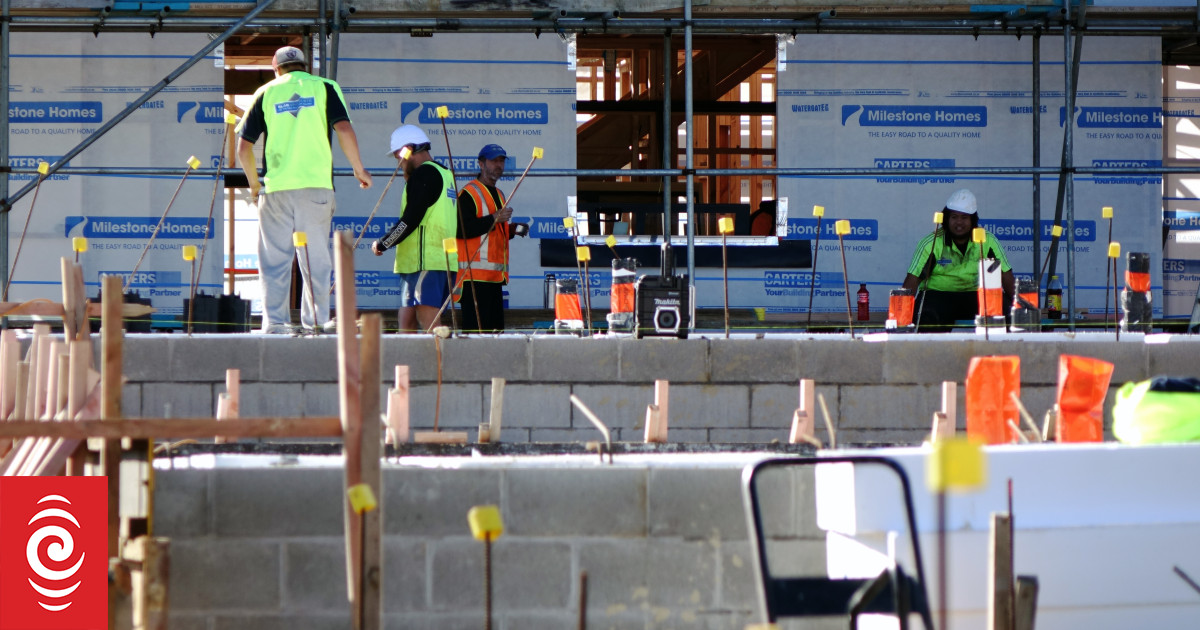At least 8,000 people rescued from debris in Turkey with 380,000 taking refuge in shelters
More than 8,000 people so far have been pulled from the debris in Turkey, said the Turkish vice-president, Fuat Oktay. About 380,000 people have taken refuge in government shelters or hotels, with others huddling in shopping malls, stadiums, mosques and community centres.
Associated Press reports that many people have posted to social media to plead for assistance for loved ones believed to be trapped under rubble, with Turkey’s state-run Anadolu news agency quoting interior ministry officials as saying that all calls were being “collected meticulously” and the information relayed to search teams.
The Turkish president, Recep Tayyip Erdoğan, said 13 million people among the country’s population of 85 million were affected in some way. He has declared a state of emergency in 10 provinces in order to manage the response. Turkey said it would only allow vehicles carrying aid to enter the worst-hit provinces of Kahramanmaraş, Adıyaman and Hatay in order to speed the effort.
Turkey has large numbers of troops in the border region with Syria and has tasked the military to aid in the rescue efforts, including setting up tents for the homeless and a field hospital in Hatay province. The defence minister, Hulusi Akar, said a humanitarian aid brigade based in Ankara and eight military search and rescue teams had also been deployed.
Key events
-
Death toll in earthquake reaches 6,000
-
Summary of the day so far …
-
At least 8,000 people rescued from debris in Turkey with 380,000 taking refuge in shelters
-
Thousands of children may be among dead – Unicef
-
Erdoğan imposes three-month state of emergency on 10 Turkish provinces affected by quake
-
Summary of the day so far …
-
Have you been affected by the earthquakes in Turkey and Syria?
-
Difficult conditions frustrate rescue efforts as death toll reaches 5,000
-
WHO: 23m people including 1.4m children likely to have been affected by earthquake
-
Combined death toll in Turkey and Syria exceeds 5,000
-
How you can help victims of the Turkey and Syria earthquake
-
24,400 people involved in Turkish search and rescue, 5,775 buildings confirmed collapsed
-
Total death toll approaches 5,000 as number reported dead in Syria rises again
-
Summary
-
Death toll in Turkey rises to 3,381
-
Over 7,800 rescued in Turkey
-
Syrian opposition says ‘hundreds of families’ still trapped under rubble
-
Almost 13,000 rescue workers leave Istanbul for affected areas – local media
-
5.6 magnitude earthquake hits central Turkey
-
Summary
Death toll in earthquake reaches 6,000
The death toll has reached 6,000 with the search for survivors ongoing, according to the Associated Press.
The Turkish defence ministry says the fire at Iskenderun Port on the Mediterranean Sea has been extinguished, Reuters reports.
After the earthquake struck on Monday, images and videos showed burning containers and thick black smoke rising overhead.
Here are some of the latest images sent to us over the news wires from Syria and Turkey.




Helena Smith
Authorities in Turkish-occupied Northern Cyprus have confirmed that reports of a group of high school students being rescued from the rubble of a hotel in the southeastern city of Adiyaman are incorrect.
“I have just spoken to the mother of one of them and can confirm that neither her child nor any other has been found,” Sener Elcil, former head of the breakaway state’s teachers union told the Guardian. Members of a school volleyball team, the students were in the city to compete in a tournament when the devastating earthquake struck.
“While some educators and the parents who were with them managed to escape the hotel, the children were trapped and no one has so far been pulled out of the building,” he said.
Sener, who headed the union until last year and is helping coordinate rescue efforts with the school, said other groups of Turkish Cypriot school children were also in Turkey when the 7.8- magnitude quake hit “which explains the confusion.” The territory, which has only been recognised by Ankara since declaring independence in 1983, has strong ties with Turkey.
“One of the groups [also staying in Adiyaman] managed to come back but is not the volleyball group,” he added. “Today we sent [mobile phone] power banks and coats to the teachers and parents who got out of the hotel because the temperatures are freezing and they had no way of communicating with us. They have stayed on because they want to help in the rescue efforts.”
Turkish Cypriot leader Ersin Tartar, who has had oversight of the rescue efforts, has reportedly dispatched a 100-strong rescue team to the hotel and has vowed to follow up with new missions daily in a bid to help overstretched rescue operations currently underway.
The island’s outgoing president Nicos Anastasiades tweeted today that Cyprus was ready to “contribute and offer our assistance to the humanitarian, rescue and recovery efforts.” Foreign ministry officials said the offer had been rebuffed by Turkey. In the wake of the 1974 Turkish invasion, following a right-wing coup aimed at uniting the island with Greece, Ankara has refused to extend diplomatic recognition to Cyprus.
We have removed a previous post which said that the 24 junior Turkish Cypriot high school students were found because it was later found to be incorrect.
Reuters reports that Egyptian president Abdel Fattah al-Sisi spoke with Turkish president Tayyip Erdogan in a phone call to offer condolences and support after the deadly earthquake, Egypt’s presidency said in a statement on Tuesday.
Summary of the day so far …
It is quarter past 7pm in Ankara and Damascus. Here is a summary of the latest situation in Turkey and Syria after yesterday’s earthquake and aftershocks.
-
Aftershocks, freezing temperatures and damaged roads are hampering efforts to reach and rescue those affected by Monday’s earthquake in southern Turkey and northern Syria, which has killed more than 5,000 people and destroyed thousands of buildings.
-
As the scale of the devastation from the 7.8 magnitude tremor continued to unfold, the World Health Organization warned the number of casualties could exceed 20,000. Initial rescue efforts were stalled by a second quake on Monday that measured 7.7 magnitude. Adelheid Marschang, a WHO senior emergency officer, has said about 23 million people, including 1.4 million children, are likely to be affected by the quake.
-
The number of confirmed deaths in both Turkey and Syria now stands at 5,261, with the expectation that numbers will continue to rise, according to Reuters. The death toll in the rebel-held north-west of Syria has been raised to 900.
-
More than 8,000 people so far have been pulled from the debris in Turkey, said the Turkish vice-president, Fuat Oktay. About 380,000 people have taken refuge in government shelters or hotels, with others huddling in shopping malls, stadiums, mosques and community centres.
-
Tuesday afternoon, Recep Tayyip Erdoğan declared a disaster zone for the 10 provinces affected by the devastating earthquakes in southern Turkey, imposing a state of emergency in the region for three months.
-
Turkey’s disaster management agency said it had 11,342 reports of collapsed buildings, of which 5,775 had been confirmed. Turkey’s ministry of transport and infrastructure said that overnight 3,400 people took shelter in trains being used as emergency accommodation.
-
Turkey has deployed more than 24,400 search and rescue personnel to the quake area. The number of personnel was expected to rise with the arrival of additional people, disaster management agency official Orhan Tatar said.
-
Three British nationals are missing following the earthquake that struck south-eastern Turkey, near the Syrian border, the UK’s foreign secretary said on Tuesday. “We assess that the likelihood of large-scale British casualties remains low,” James Cleverly said.
-
At least 20 people have escaped from a jail holding members of Islamic State (IS) in north-west Syria in the aftermath of yesterday’s earthquakes, according to local media and Agence France-Presse. The military police prison in the town of Rajo, near the Turkish border, was damaged in the quakes and aftershocks, a source at the facility said, leading to a riot and escapes.
-
Aid from Turkey to north-west Syria has temporarily stopped due to the fallout of the devastating earthquake, a UN spokesperson said on Tuesday, leaving aid workers grappling with the problem of how to help people in a country fractured by war.
-
Syria was accused of playing politics with aid after the Syrian ambassador to the UN, Bassam Sabbagh, said his country should be responsible for the delivery of all aid into Syria, including those areas not under Syrian government control. The dispute over the control of the aid is hampering efforts into northern Syria, which is held by rebel groups. The government in Damascus allows aid to enter the region through only one border crossing.
-
The UN’s cultural agency Unesco said on Tuesday it was ready to provide assistance after two sites listed on its world heritage list in Syria and Turkey sustained damage in the devastating earthquake. As well as the damage to the old city of Syria’s Aleppo and the fortress in the southeastern Turkish city of Diyarbakır, Unesco said at least three other world heritage sites could be affected.
-
A fire at the port of İskenderun on the Mediterranean Sea continues for the second day. Television images showed thick black smoke rising from burning containers which had toppled when the quake struck on Monday.
-
Police in Turkey said on Tuesday they had detained four people over “provocative” social media posts. The four individuals were detained after officers found accounts that shared “provocative posts aiming to create fear and panic”, the police said.
The UK prime minister, Rishi Sunak, said his government was working to send support to those affected by the “incredibly tragic situation” in Turkey and Syria “as quickly as possible”.
Sunak said:
It’s obviously an incredibly tragic situation that we’re all seeing in Turkey and Syria. I want everyone to know that we are doing what we can to provide support, we are in touch with the authorities in both Syria and Turkey.
The foreign secretary, James Cleverly, told MPs he had already authorised the deployment of a medical assessment team to respond to the earthquake, adding:
The further stages of requirement will evolve over time, we will of course work closely with our international partners to make sure we address that.
Sam Jones
Videos and photographs of the two earthquakes that have devastated southern Turkey and northern Syria, killing at least 5,000 people, show rescuers digging with their hands, apartment blocks collapsing to the ground in seconds, and the shaking apart of a castle that had stood for almost two millennia.
But few images depict the agony quite as plainly as a photograph from the Turkish region of Kahramanmaraş, in which a father holds the hand of his dead teenage daughter as rescuers and civilians pick through the flattened building where she died on Monday.

Read more here:

Jedidajah Otte
BJ Richardson, 45, a US citizen who works as a teacher in Gaziantep, near the epicentre of the earthquake in Turkey, tells Jedidajah Otte his experience of the situation unfolding on the ground.
We are all in shock. I walked through a small area of Gaziantep on Tuesday morning. Damage is everywhere – cracked buildings, plaster, broken glass, some buildings have fallen. Each of these buildings represents hundreds of people who are now homeless.
I saw dozens of cars with people or even whole families sleeping in them. Temperatures were freezing last night, below 30F [-1C]. Their batteries, their gas, it will not last.
I’m American and have been living and teaching in Gaziantep for the past seven years.
I woke up at 4.17am when the first earthquake hit. We do get occasional earthquakes but this one was clearly many orders of magnitude worse. And it just did not stop.
I live on the third floor of an old five-storey concrete building, and I was expecting it to collapse. My windows were shoved open, and I could hear glass shattering in the hall as people came running out of their apartments and outside, pretty much as soon as they could, which was not the wisest thing to do, but – you panic.
Read more here:
Aid from Turkey to north-west Syria has temporarily stopped due to the fallout of the devastating earthquake, a UN spokesperson said on Tuesday, leaving aid workers grappling with the problem of how to help people in a country fractured by war.
The cross-border aid operation overseen by the UN since 2014 has been crucial to Syrians who fled President Bashar al-Assad’s rule during the conflict, bypassing the territory he controls.
Now, however, there is no clear picture of when the aid, on which some 4 million people depend, would resume, Madevi Sun-Suon, spokesperson for the UN Office for the Coordination of Humanitarian Assistance (OCHA), told Reuters.
Sun-Suon said:
Some roads are broken, some are inaccessible. There are logistical issues that need to be worked through. We are exploring all avenues to reach people in need.
One avenue includes delivering aid via government-held territory, a process involving crossing frontlines through which aid has seldom passed during the war. Damascus has long opposed the humanitarian operation that has delivered aid into Syria from Turkey, saying assistance should be delivered via Damascus.
Here are some of the latest images sent to us over the news wires from Syria and Turkey.



Reuters has a quick snap to say that the death toll in the rebel-held north-west of Syria has been raised to 900.
Earlier today it was given as 790, with a warning that it would “dramatically” rise.
The total death toll in both Turkey and Syria now stands at 5,261, with the expectation that numbers will continue to rise.

Bethan McKernan
At least 20 people have escaped from a jail holding members of Islamic State (IS) in north-west Syria in the aftermath of yesterday’s earthquakes, according to local media and Agence France-Presse.
The military police prison in the town of Rajo, near the Turkish border, was damaged in the quakes and aftershocks, a source at the facility said, leading to a riot and escapes.
The jail, run by Turkish-backed Syrian opposition fighters, houses about 2,000 inmates. About 1,300 are suspected IS fighters, and most of the rest of the population are suspected to be members of the US-backed Syrian offshoot of the Kurdistan Workers’ party (PKK). All 20 who escaped were believed to be IS, the source told AFP.
The UK-based Syrian Observatory for Human Rights war monitor said it could not verify whether prisoners had escaped, but confirmed there was a mutiny in which guards lost control of parts of the prison.
Most suspected members of IS captured in Syria are held in facilities under the oversight of Kurdish forces in Syria’s north-east, which was not as badly affected by Monday’s deadly earthquake and aftershocks. There have been a number of attempted outbreaks in the past, but most have been unsuccessful.
The group lost control of the last slivers of its territory across Syria and Iraq in 2019 after a five-year US-led fight to destroy the jihadists’ “caliphate”. Cells affiliated to IS have continued to operate since in both countries.
At least 8,000 people rescued from debris in Turkey with 380,000 taking refuge in shelters
More than 8,000 people so far have been pulled from the debris in Turkey, said the Turkish vice-president, Fuat Oktay. About 380,000 people have taken refuge in government shelters or hotels, with others huddling in shopping malls, stadiums, mosques and community centres.
Associated Press reports that many people have posted to social media to plead for assistance for loved ones believed to be trapped under rubble, with Turkey’s state-run Anadolu news agency quoting interior ministry officials as saying that all calls were being “collected meticulously” and the information relayed to search teams.
The Turkish president, Recep Tayyip Erdoğan, said 13 million people among the country’s population of 85 million were affected in some way. He has declared a state of emergency in 10 provinces in order to manage the response. Turkey said it would only allow vehicles carrying aid to enter the worst-hit provinces of Kahramanmaraş, Adıyaman and Hatay in order to speed the effort.
Turkey has large numbers of troops in the border region with Syria and has tasked the military to aid in the rescue efforts, including setting up tents for the homeless and a field hospital in Hatay province. The defence minister, Hulusi Akar, said a humanitarian aid brigade based in Ankara and eight military search and rescue teams had also been deployed.





















Discussion about this post